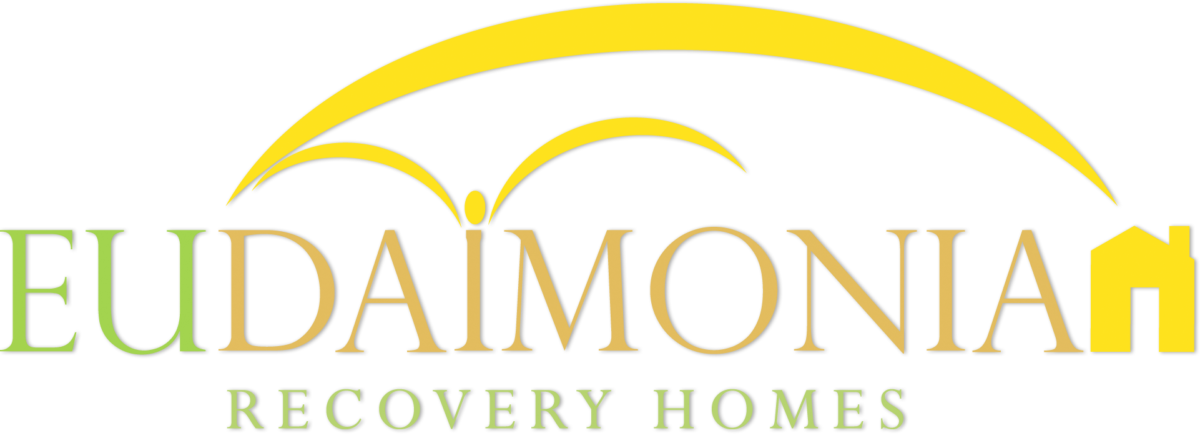
Sleep Deprivation & Substance Abuse
What you need to know to prevent relapse
Table of contents
- National Sleep Awareness Week: March 13-19th
- Common causes of sleep deprivation
- Sleep deprivation and substance abuse: How do sleep issues increase the risk of relapse?
- The effects of sleep loss during recovery
- How to get good quality sleep in recovery
- Get support for addiction recovery with Eudaimonia Recovery Homes
Sleep deprivation and substance abuse problems are deeply interconnected. Just as misusing drugs can make it difficult to get good quality rest, withdrawing from addictive substances can have the same effect. Not only that, but not getting enough sleep in recovery can leave you more vulnerable to relapse.
People with substance abuse disorders are up to 10 times more likely to have a sleep disorder. These sleep issues can fuel a harmful cycle of sleep-related issues and addiction.1 If you’re in recovery, it’s important to understand the connection between the two issues, how it can potentially affect your sobriety, and establish healthy lifestyle habits to ensure sustainable recovery.
To help you lead the best sober life you can, we’ll explore these issues and describe how recovery support services at Eudaimonia can help you adjust to common challenges in addiction recovery.
Related post: Benefits of Mindfulness-Based Relapse Prevention
National Sleep Awareness Week: March 13-19th
National Sleep Awareness Week is an annual event. It celebrates sleep health and educates and encourages people to prioritize sleep to enhance their overall health and well-being.2 This national celebration is the perfect opportunity to step back and take a look at your sleep habits to determine how you can improve them.
Unsure if your sleep can use improvement? Ask yourself questions like:
- “Am I tired all the time?”
- “Do I have trouble falling asleep regularly?”
- “Why do I find myself waking too early, unable to fall asleep again?”
Your answers will help you determine how you can enhance your mental and physical health with better quality sleep. This includes your sobriety journey!
Common causes of sleep deprivation
According to the Sleep Foundation, sleep deprivation can have many causes, including:3
- Poor sleep hygiene: Having an inconsistent sleep schedule or consuming too much media before bed are examples of poor sleep hygiene. These things can all affect how much sleep a person gets or whether they get good quality rest.
- Lifestyle choices: Consuming caffeine too close to bedtime, staying up late to party, or consuming large amounts of alcohol (especially within four hours of going to sleep) can all have a negative impact on sleep quality.
- Work: Work obligations can make it hard to get good rest. For example, people who work multiple jobs or overnight shifts may not get enough sleep.
- Sleep disorders: Sleep disorders like insomnia can greatly hinder sleep quality and the amount of sleep a person gets.
- Other medical or mental health conditions: Other conditions like anxiety, chronic pain, or substance use disorders can make it difficult for people to get enough sleep or quality rest.
Sleep deprivation and substance abuse: How do sleep issues increase the risk of relapse?
A person might experience one or several of the contributing factors listed above. In turn, that will affect how they feel, behave, and think. And for those with a history of substance abuse, sleep deprivation can have a severely negative impact on their recovery. Current research suggests people in recovery who suffer from sleep disturbances have an elevated risk of relapse compared to those who don’t.4
According to the National Institute on Drug Abuse, most common mental health disorders are associated with sleep disturbances. Substance use disorders are no exception.5 People who use drugs commonly experience insomnia during withdrawal, which fuels drug cravings and can increase the risk of relapse. Additionally, due to the important role sleep plays in consolidating new memories, poor quality sleep can also make it harder for people to learn the self-regulation and coping skills they need for recovery.
The side effects of sleep deprivation can be severe. They may include depression, difficulty concentrating, mood swings, more frequent illness, high blood pressure, weight gain, and more.6 As a result, some people may try to self-medicate with drugs or alcohol. This is especially true if they have a history of substance abuse.
The effects of sleep loss during recovery
Sleep problems are common among people in recovery. Many individuals experience sleep issues for weeks, months, or even years into their recovery. Often, they’re associated with relapse. Generally, this is because sleep loss has significant negative effects on the mental, physical, and emotional well-being of people in recovery and can interfere with treatment.
Since detox and withdrawal can often cause insomnia, beginning your sobriety journey with sleep deprivation can produce many unwanted side effects that last well into your recovery, such as:
- Stronger cravings
- Irritability
- Anxiety
- Poor concentration
- Impaired decision-making skills
- Reduced alertness
- Slow reaction time
- Poor emotional regulation
If these side effects are left unaddressed, they’ll severely inhibit your ability to stay sober and grow on a personal level in recovery.
How to get good quality sleep in recovery
Sleep deprivation and substance abuse recovery are difficult challenges to overcome. Although it’s often an uphill battle to get a good night’s rest, there are several things you can do to improve your sleep habits and enhance your sleep quality.8 In turn, these tips should also help reduce your risk of relapse.
Educate yourself about sleep hygiene.
First, learn about the various ways you can promote a good night’s rest,. For example, having a regular sleep routine (going to bed and waking at the same time each day), getting lots of natural light during the day, creating a relaxing environment in your bedroom, and sleeping in a dark, quiet, and cool room.
Practice relaxation techniques.
Additionally, certain mind-body practices like mindfulness meditation and yoga can help you let go of physical and emotional stressors and get a more restful night’s sleep. These practices also reduce stress and improve self-control.
Watch your caffeine intake.
Consuming too much caffeine or having it too late in the afternoon can make it more difficult to fall asleep. Reducing your overall caffeine intake and limiting the times you consume it can help improve your sleep.
Exercise regularly (but not right before bed).
Researchers have found people who exercise regularly get better, and more, sleep!7 To start, focus on getting at least 30 minutes of moderate aerobic exercise to reap the sleep-enhancing benefits. But, just remember not to workout too close to your bedtime. Otherwise, those endorphins might have the opposite effect and keep you awake at night.
Seek professional help.
Above all, ask for help. If you’re completing outpatient addiction treatment while living at a sober home, it’s important that the staff screens for insomnia. For instance, they may include questions about sleep in the routine patient history questionnaire. Your treatment professionals, counselor, or therapist should also rule out any other possible causes of sleep disturbances. For example, excessive stress or medications you’re taking.
Additionally, a professional addiction treatment expert or therapist can provide help with proven non-pharmacological treatments like:9
- Progressive muscle relaxation
- Biofeedback
- Cognitive behavioral therapy for insomnia
- Bright light therapy
Although it’s always best to explore pill-free solutions first, in some cases, sleep medications may be necessary. However, your medication usage should be very closely monitored by a doctor to ensure there’s no risk to your ongoing sobriety.
Related post: 10 Types of Therapy Used In Addiction Treatment and Recovery
Get support for addiction recovery with Eudaimonia Recovery Homes
In conclusion, sleep deprivation and substance abuse recovery are extremely difficult issues to deal with on your own! Whether you’re struggling with insomnia or other related problems that are affecting your recovery, Eudaimonia Recovery Homes can help. We offer well-rounded recovery support services to address your physical, emotional, and psychological needs in recovery. We also provide an intensive outpatient program (IOP), both online and in-person, and access to licensed therapy sessions to help you deal with personal issues that are hindering your sobriety.
The caring staff at Eudaimonia is available to help with outpatient treatment, aftercare services, and sober living Austin, Houston, and Colorado Springs. Please call (512) 580-3131 or contact us online today to speak with an admissions representative.
References:
- https://www.psu.edu/news/research/story/sleep-quality-and-emotions-affect-opioid-addiction-recovery/
- https://www.thensf.org/sleep-awareness-week/
- https://www.sleepfoundation.org/sleep-deprivation
- https://www.ncbi.nlm.nih.gov/pmc/articles/PMC2850945/
- https://nida.nih.gov/about-nida/noras-blog/2020/03/connections-between-sleep-substance-use-disorders
- https://www.healthline.com/health/sleep-deprivation/effects-on-body
- https://www.hopkinsmedicine.org/health/wellness-and-prevention/exercising-for-better-sleep
- https://store.samhsa.gov/sites/default/files/d7/priv/sma14-4859.pdf
- https://www.healthline.com/nutrition/17-tips-to-sleep-better#15.-Get-a-comfortable-bed,-mattress,-and-pillow
Contact Us
Contact us today. We can help. 512.363.5914
Our Locations
- Austin, TX
- Houston, TX
- Colorado Springs, CO
Gender-Specific Homes
- Men
- Women
- LGBTQ
Latest Blogs
- Pet-Friendly Sober Living Accommodations | Eudaimonia Recovery Homes
- Sober Living Austin Texas: A Trusted Path to Recovery for Men at Eudaimonia Homes
- Sober Living Apartments in Austin for Men | Begin Your Recovery Today
- Affordable Sober Living in San Antonio: Your Path to Recovery Starts Here
- Affordable Sober Living San Antonio – Cost-Effective Recovery Solutions
More Topics
- Accountability in Sober Living
- Addiction
- Austin AMP
- Employee Spotlight
- Exercise for Recovery
- Experience
- Extended Care
- Movie Review
- Outpatient Care
- Recovery
- Sober Fun
- Sober Living
- Sober Living Activities
- Structured Sober Living
- The Sober Life: Austin
- The Sober Life: Colorado Springs
- The Sober Life: Houston
- The Sober Life: Los Angeles
- The Sober Life: San Antonio
- The Sober Life: Tampa
- Twelve Steps
Take Action Today
We Are Ready to Assist You
Call us now and begin healing at (51) 236-35914 or you can fill out form below and we will contact you shortly.
Or text us and we will call you right back.
- Why Choose Eudaimonia for Your Sober Living Experience?
- Recovery-Focused Lifestyle
- Individualized Care
- Homes for Everyone
- On-Site Support Staff
- Family Support



